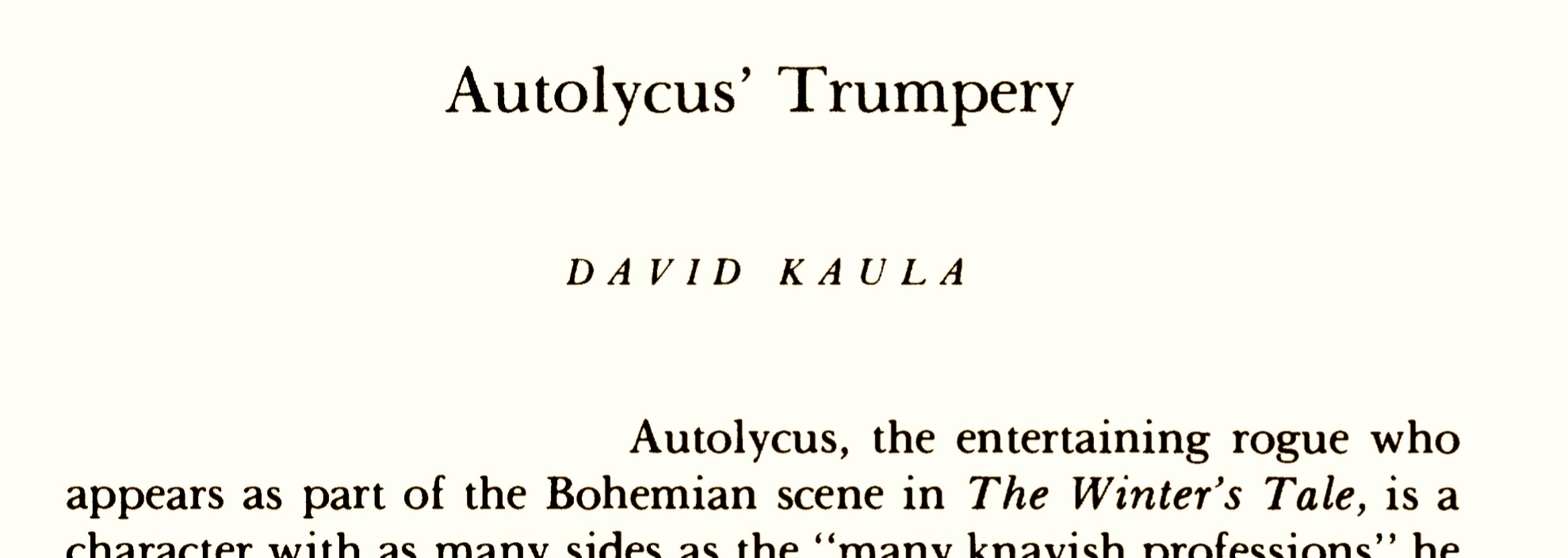The word “trumpery” has gained prominence, says this study: “Autolycus’ Trumpery,” David Kaula, Studies in English Literature, 1500-1900, vol. 16, no. 2, published in the journal Elizabethan and Jacobean Drama, Spring 1976, pp. 287-303.
The author explains: “writers seem to be especially addicted to the word “trumpery,” probably because, through its derivation from tromperie, it suggests deception or trickery… The blessing Hermione then asks the gods to bestow on her daughter is a last reminder of the difference between this kind of spirituality and the sham “benediction” Autolycus sold with his hallowed trumpery.”
The study begins by giving the Shakespearean background to it all: “Autolycus, the entertaining rogue who appears as part of the Bohemian scene in The Winter’s Tale, is a character with as many sides as the ‘many knavish professions’ he has run through since he was whipped out of court and lost his job as servant to Prince Florizel”
